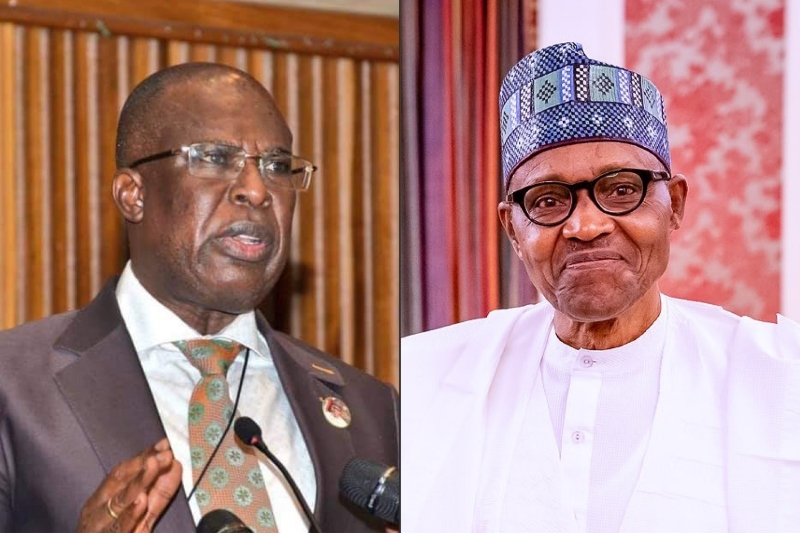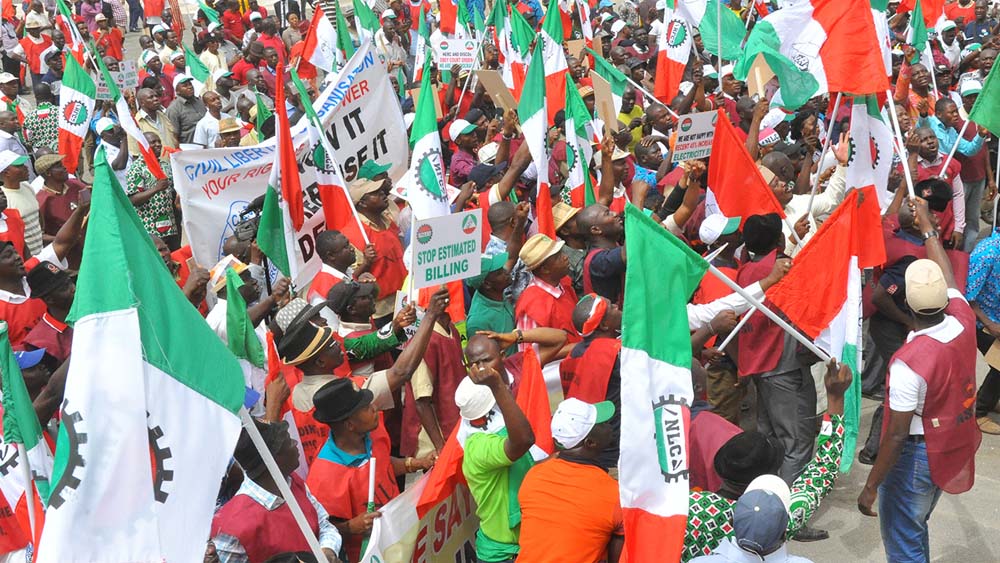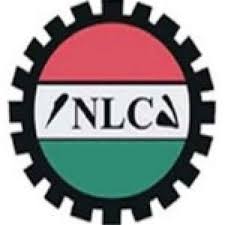Energy
FG To Maximize Local Content Opportunities In Midstream/Downstream Sectors

Lucky MOMOH
ABUJA-THE Federal Government has expressed firm determination to fully catalyze investments in the midstream and downstream sectors of the petroleum sector, with a view to creating employment for teeming youths and maximizing local content opportunities.
The Minister of State for Petroleum Resources, Chief Timipre Sylva gave assurance recently when he declared open the Nigerian Content Midstream and Downstream Oil and Gas Summit organized by the Nigerian Content Development and Monitoring Board (NCDMB) in Lagos.
He stated that the Nigerian Oil and Gas industry is currently in the phase of exploring the vast opportunities and potentials associated with the midstream and downstream sectors and commended the NCDMB for intervening to foster dynamism in the sectors through the summit.
He acknowledged that the midstream and downstream sectors did not receive the deserved focus in the past but hinted that the situation was set to change because the recently enacted Petroleum Industry Act (PIA) contains fiscal incentives to attract investment in gas development, distribution, penetration, and utilization and provides exceptional care for host communities. He charged industry stakeholders to take determined steps to unlock natural gas and domestic production potentials and use the opportunities in the gas ecosystem to drag millions of Nigerians out of energy poverty.
In his welcome address, the Executive Secretary, NCDMB, Engr. Simbi Kesiye Wabote affirmed that the Board is keen to maximize Local Content opportunities in the midstream and downstream sectors because they offer the greatest number of employment opportunities as well as longevity of jobs in contrast to the upstream sector of the oil industry.
“This provides means to absorb outputs of our Human Capacity Development programs in the form of job opportunities,” he added.
He also stated that the entry barrier for businesses to partake in the midstream and downstream sectors of the industry is relatively lower compared to the upstream sector and there are vast business opportunities in the midstream to downstream sectors, ranging from processing, transportation, storage, and distribution that could be started on small scale and later scaled up to bigger enterprises thereby growing in-country capacities and capabilities.
According to Wabote, the profit margin is also attractive in the midstream and downstream, especially in the LPG distribution value chain and this serves as an incentive to attract a wider number of players.
He emphasized the need to maximize the potentials of the midstream and downstream sectors to ensure energy security and national pride, adding that the direct social impact of a productive and efficient midstream and downstream sector of the oil and gas industry also needs to be maximized.
The Executive Secretary further explained that the Nigerian Oil and Gas Industry Content Development (NOGICD) Act established NCDMB as the regulator of Nigerian Content in the entire spectrum of the Nigerian oil and gas industry. He added that the Board’s regulatory role is not to stifle the industry but to provide enabling, and inclusive, business environment for businesses to thrive with the active participation of critical stakeholders.
Giving a rundown of the Board’s achievements in the midstream and downstream sectors, the Executive Secretary listed the partnership with Waltersmith, which resulted in the delivery of the 5,000barrels per day modular refinery in Imo State, the 2,500barrels per day Duport Modular Refinery located in Edo State, which is due for commissioning this year as well as the 2,000barrels per day Atlantic Refinery and the 12,000barrels/day Azikel Hydro-skimming Refinery both in Bayelsa state, which are under construction.
Other achievements of the Board include the partnership with the NNPC to construct a 50,000liters petroleum products terminal in Brass, the partnership with Bunorr Integrated Energy Ltd for the establishment of 48,000 liters/day Base Oil Production Facility in Port Harcourt, Rivers State, which is due for commissioning this year and the ongoing construction of the Eraskon Lube Oil factory in Gbarain, Bayelsa State
Dwelling on the LPG value chain, the Executive Secretary stated that the Board had gone into partnership with some investors to develop some projects. Some of them included the partnership with NEDO Gas Processing Company in Kwale, Delta State for the establishment of 80MMscfd of Gas Processing Plant and a 300MMscfd Kwale Gas Gathering hub, partnership with Triansel Gas Limited in Koko, Delta State for the establishment of 5,000MT LPG Storage and Loading Terminal Facility and partnership with Brass Fertiliser for the development of a 10,000MT/day Methanol Plant at Odiama in Brass.
Others are the partnership with Butane Energy to roll out LPG Bottling Plants and Depots in Abuja and 10 northern states and partnership with Southfield Petroleum for the establishment of 200 MMscfd gas processing plant at Utorogu, Delta State to produce 123,000MTPA of LPG, which is about 10 percent of current LPG demand nationwide.
Other investments include the partnership with MOB Integrated Services for the construction of the 500MT Inland LPG terminal which is currently in operation at Dikko, Niger State as well as the partnership with Amal Technologies to set up a plant in Abuja to produce Smart Gas/Smoke Detector Alarm devices.
Energy
NLNG Improves Nigeria’s Domestic LPG Supply Operational Efficiency

In line with its continuous improvement culture, the Nigeria LNG Limited (NLNG) will be working closely with its stakeholders to improve operational efficiency in its domestic Liquefied Petroleum Gas (DLPG) supply in Nigeria.
According to a statement from its General Manager, External Relations and Sustainable Development, Sophia Horsfall, this was highlighted at an engagement session with stakeholders in Lagos.
It was gathered that the NLNG plans to enhance engagement and improve operational efficiency of its LPG supply through digitalisation of some of its processes which include a new platform designed to streamline regulatory processes, optimise risk management, and enhance the buyer experience. The platform will feature IT-supported relationship management, automated issue resolution, centralised real-time payments, and improved case management systems, ensuring a seamless supply process despite market shifts and external pressures.
ALSO READ: Ifon-Ilobu Crisis: Adeleke Assures Of Quick Restoration Of Peace
Manager, Commercial Contract Management, NLNG, Tolulope Longe, reiterated that the planned improvements will enable and consolidate NLNG’s resolve to delivering 100% of its LPG supply to the Nigerian market.
She said a strategic roadmap was in play to ensure the achievement of NLNG’s longstanding goals of LPG being accessible and available in the country, aligning with its vision of being a globally competitive energy company, improving lives sustainably. She also harped on the significance of these improvement initiatives and the Company’s push for LPG utilisation as a clean energy source alternative to kerosene and other fossil fuels
Longe noted that the Company remained focused on growth and sustainability of the LPG market by continuously enhancing its supply processes in collaboration with offtakers. She stressed NLNG’s commitment to collaborating with stakeholders to maintain pricing stability and long-term market viability. While acknowledging industry concerns, she noted the importance of operational efficiency in meeting market demands.
NLNG aims to strengthen stakeholder engagement and improve market efficiency in the LPG sector through enhanced customer interactions, minimised schedule disruptions, timely confirmations and deliveries, and prioritisation of customers with demonstrable capacity. As it adapts to market realities, NLNG remains committed to driving sustainability and delivering lasting value to Nigerians.
Energy
Savannah Energy Completes SIPEC Acquisition

In line with its announcement of 19 March 2024, Savannah Energy has completed the acquisition of Sinopec International Petroleum Exploration and Production Company Nigeria Limited (SIPEC).
Making the revelation, an elated Chief Executive Officer, Savannah Energy, Andrew Knott, said, “We are delighted to announce the completion of the SIPEC Acquisition – the achievement of one of our core business priorities for 2025. Our focus at the Stubb Creek Field will now turn to progressing the expansion project, which we expect to increase production by almost three quarters over the course of 2025/26. I look forward to updating shareholders on this in the coming months, as well as on the progress we make towards achieving the other core business priorities we outlined to shareholders earlier this month.”
He expressed gratitude to the Nigerian government for making the acquisition possible, having required several levels of regulatory approvals.
ALSO READ: Tinubu Plans 10,000 Electric Vehicles For North-East
“I would like to thank the Government of Nigeria for the support that they have shown our Company in approving the SIPEC Acquisition and I extend a warm welcome to the SIPEC employees joining Savannah today,” he added.
Biztellers reports that the SIPEC’s principal asset is the 49% non-operated interest in the Stubb Creek oil & gas field (“Stubb Creek Field”), which is operated and 51% owned by Universal Energy Resources Limited (a Savannah affiliate company).
The SIPEC Acquisition increases Savannah’s Reserves and Resources base by approximately 30% from 151 MMboe to 197 MMboe. It adds 227 Bscf of 2C gross gas Resources at Stubb Creek Field, securing significant additional long-term feedstock gas available for sale to Accugas customers.
It was gathered that the transaction consideration was fully funded through a drawdown under a US$60 million Reserve-Based Lending debt facility arranged by The Standard Bank of South Africa Limited. At completion the cumulative consideration paid was approximately US$35.1 million (inclusive of approximately US$19.5 million of cash available to SIPEC), with US$2 million in deferred cash consideration payable in eight quarterly installments post-completion.
Savannah now intends to commence an up to 18-month expansion programme, which is anticipated to increase Stubb Creek Field gross production from an average of 2.7 Kbopd in 2024 to approximately 4.7 Kbopd.
Stubb Creek Field, located in Akwa Ibom State, Nigeria, is a producing oil field with considerable undeveloped, non-associated 2C gas resources. As at year-end 2024, Stubb Creek Field had an estimated 11 MMstb of 2P gross oil Reserves and 515 Bscf of 2C gross gas Resources1.
Commercial oil production started at Stubb Creek Field in 2015, with cumulative production of 8.1 MMstb to 31 December 2024. Oil produced at Stubb Creek Field is processed through production facilities onsite and then exported to the Qua Iboe terminal via a 25 km pipeline.
The Stubb Creek Field was converted to a 20-year petroleum mining lease in accordance with the Petroleum Industry Act 2021 and effective from 1 December 2023.
Energy
Shell On Place Of Infrastructure In Developing Nigeria’s Gas resources
Shell has called for the development of infrastructure to promote the growth of domestic gas and monetisation of the resource.
At a panel session at the just concluded Nigeria International Energy Summit (NIES) in Abuja, Managing Director Shell Nigeria Gas (SNG) Ralph Gbobo, said, “The infrastructure will support the delivery of gas from producers to consumers in an efficient way that is also transparent and cost effective.”
Ralph described infrastructure as the bedrock of a thriving gas industry, citing the Escravos – Lagos Pipeline System (ELPS) which feeds the domestic gas market as an example. He said: “If we can fully implement our regulations, a key one being the Network Code and maintain a stable Network where investors can get their returns, I can guarantee that we will see more players come into this space.”
ALSO READ: Shell Exhibition Delivers Value At Energy Summit
SNG which was established in 1988 has led the way in the provision of gas infrastructure in Nigeria, building gas distribution systems in Rivers, Abia and Ogun states through which it delivers gas to over 140 domestic, industrial and commercial customers. Last year, the company signed an agreement with the Oyo State Government to build a gas distribution infrastructure with the intention of delivering gas to businesses in the state and beyond.
Ralph explained: “Our experience at SNG shows that the task of expanding the Nigerian domestic gas market is a collective responsibility and not to be done by just a few players. It requires inputs from the regulatory, upstream, midstream and downstream sectors. The key to unlocking all these inputs is driving and implementing the right polices. The implementation of clear policies and incentives, allows for more investors to come into the domestic gas market be it in terms of gas production or infrastructural development. Investors need to be assured of a stable regulatory and fiscal market where their investments are guaranteed.”
He added: “Shell Companies in Nigeria have invested across the entire value chain of gas — Upstream, Midstream and Downstream having understood the potential of the commodity to accelerate industrial and economic growth in Nigeria.”




















